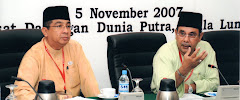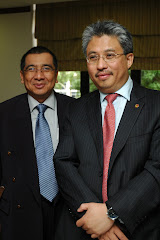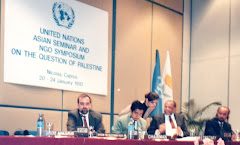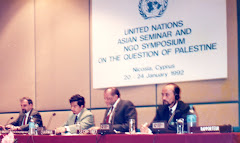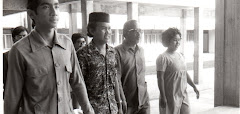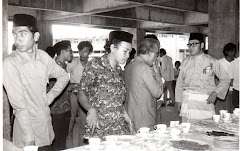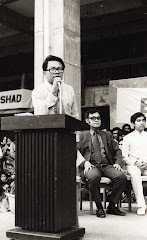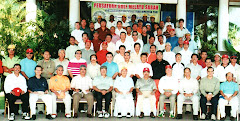PETALING JAYA: Those who expect Datuk Seri Nazri Aziz to mellow out will be disappointed.
The Tourism and Culture Minister has been in politics for 35 years and he has a reputation for being vocal. The Umno leader would occasionally air views that go against the grain of conventional thinking, either within his party or the Government.
But despite the recent controversy which erupted after he appointed his son as his special officer, Nazri, in a recent interview, said he would remain as outspoken as ever.
“If I have done something wrong, I will apologise but if I know that my stand is a principled stand, I will hold my ground, no matter what people say about me,” Nazri said.
The incident has inflamed some of his critics who, over the years, have accused him of going overboard in voicing controversial opinions.
“I have a few hats to wear – politician, social worker, lawyer. But I am a lawyer first above everything else, even above my political party.
“Upholding the law is the most important thing to me and that is why I am vocal, even if it goes against the grain of my party’s struggle,” he said when asked about the strong opinions about him.
Views about him among Umno members and supporters are also mixed. Some feel that he is a maverick while his critics say he is kurang ajar (insolent) and have not forgiven him for crossing swords with people whom, they say, he has no right to question, namely Tun Dr Mahathir Mohamad.
“It is principles and nothing personal. I debate and argue with a clear mind,” said Nazri when asked about the former prime minister.
“When I was the minister in charge of parliamentary affairs, I would argue with the Opposition all the time but I also get along with many of their MPs because they knew it was not personal.”
He attributes his outspokenness to his father Tan Sri Abdul Aziz Yeop.
Abdul Aziz studied law in Britain and later became one of Malaysia’s leading public servants, holding positions including as high commissioner to Britain and secretary-general to the Education Ministry.
“My late father was a lawyer who instilled in me the importance of having a strong conviction and principled stand,” he said.
Another trait he credits his father with is a strong faith in multi-culturalism.
“He mixed a lot with people from all races and this also moulded me to become a person some would probably consider unorthodox.
“To me, it’s very simple. I am a Malay but if I want to do something for my race, it should not be a zero sum game whereby it is seen as being at the expense of another race. You love your race but, at the same time, it doesn’t mean that you must hate the others,” he said.
Love him or hate him, the fact is that Nazri is no newbie to politics. Appointed as an Umno Youth exco member in 1978 when he was just a 24-year-old fresh law graduate, Nazri gradually climbed up the party ranks in a political career that has spanned over three decades.
He has been on the Umno supreme council since 1990 and in 1993, became Umno Youth deputy chief.
To many of his supporters, peers and colleagues, he is known simply as “chief”, a moniker he considers more than just a nickname but a term of endearment.
“When I was appointed as an Umno Youth exco member in 1978, I was neither a Datuk nor an elected representative, so many did not know what to call me.
“I was from the Malay College Kuala Kangsar and I was a ringleader among a group of friends. My old friend Datuk Naim Mohamad (currently the deputy president of the Malaysian National Cycling Federation) used to call me chief and somehow, the name stuck.
“To me, when someone calls me chief, it makes that person feels closer to me,” he said.
In the Cabinet, Nazri has served as Entrepreneur Development Minister from 1999 to 2004 after which he served as Minister in the Prime Minister’s Department before being appointed as Tourism and Culture Minister following the last general election.
Nazri said that he was worried about the recent spate of shootings and crime as this could scare tourists away.
He said he was equally vocal in the Cabinet, voicing dissenting opinions which his colleagues sometimes disagreed with.
“My views are independent because I believe that what is right is right and what is wrong is wrong, so I will always tell it as it is,” he said






























